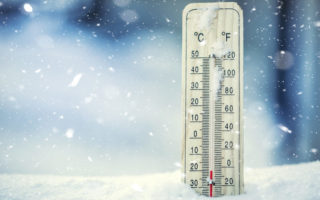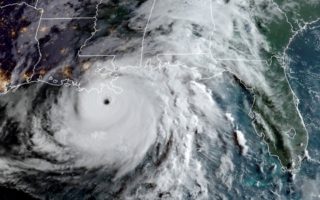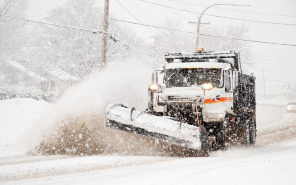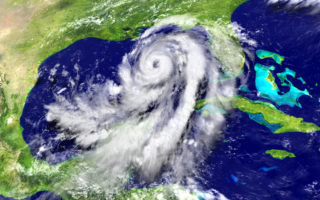Louisiana Single Deductible Statute
Oct 11, 2021
Louisiana usually experiences damage as a result of more than one storm every season. The Hurricane Season begins on June 1, 2021 and ends on November 30, 2021. The year 2020 was a historically active season with thirty named storms. As of early October 2021, 14 named storms have occurred throughout the United States, six of which were hurricanes. Three of the six hurricanes included winds over 111 miles per hour.
The first named storm in 2021 was Tropical Storm Claudette.[1] It brought torrential rain of over ten inches in certain areas of Louisiana and Mississippi.[2] It also caused wind damage. For example, Pensacola Regional Airport recorded wind gusts of 81 mph.[3] Several tornados were most likely the result of Tropical Storm Claudette.[4]
Hurricane Ida made landfall on the Coast of Louisiana on the anniversary of Hurricane Katrina, August 29, 2021.[5]
Hurricane Nicholas was the third named storm of 2021 which made landfall in Texas and caused substantial rainfall in Louisiana in mid-September 2021.[6]
As a result of the numerous named storms in 2021, a significant number of homeowners are making multiple claims in a year.
Louisiana Single Season Named-Storm Deductible
Named storm deductibles in Louisiana are typically between 2% and 10% of the Dwelling Coverage amount. The deductible is subtracted from the total amount of the claim to be paid.
In 2009, Louisiana enacted the named storm deductible statute to prevent the application of multiple named storm deductibles applying in a single year. It provides:
Homeowners’ insurance deductibles applied to named-storms, hurricanes, and wind and hail deductibles
A. For purposes of this Section, the following definitions shall apply:
(1) “Hurricane” means a storm system that has been declared a hurricane by the National Hurricane Center of the National Weather Service.
(2) “Named storm” means a storm system that has been declared a named storm by the National Hurricane Center of the National Weather Service.
(3) “Separate deductible” means a deductible that applies to damage incurred during a specified weather event and may be expressed as a percentage of the insured value of the property or as a specific dollar amount and includes hurricane, named-storm, and wind and hail deductibles.
B. For all homeowners” insurance policies or other policies insuring a one- or two-family owner occupied premises for fire and allied lines, issued or renewed by authorized insurers on or after January 1, 2010, any separate deductible that applies in place of any other deductible to loss or damage resulting from a named storm or hurricane shall be applied on an annual basis to all named-storm or hurricane losses that are subject to the separate deductible during the calendar year.
C. If an insured incurs named-storm or hurricane losses from more than one named storm or hurricane during a calendar year that are subject to the separate deductible referred to in Subsection B of this Section, the insurer may apply a deductible to the succeeding named storms or hurricanes that is equal to the remaining amount of the separate deductible, or the amount of the deductible that applies to all perils other than a named storm or hurricane, whichever is greater. Insurers may require policyholders to maintain receipts or other records of such losses in order to apply such losses to subsequent named-storm or hurricane claims.
La. Rev. Stat. Ann. § 22:1337
Practical Application
If a policyholder files a claim for hurricane damage in 2021 and meets the named storm deductible, they may not be required to pay the deductible a second time if the home sustains damage from Hurricane Ida, Hurricane Nicholas, or any subsequent storms in the 2021 season.
The statute allows the insurer to apply any remaining deductible of the first applied named storm to the later named storm in the same calendar year or the amount of the other all perils deductible, whichever is greater.
In 2018, after some confusion around the newly enacted law, the Louisiana Insurance Commissioner issued a directive offering guidance on the application of the named storm deductible. The bulletin recognizes that the contract between the insurer and the insured controls and states:
Given that the insurance policy is a “contract” between the insurer and the insured, both parties are governed by the terms, conditions and definitions set forth in the policy. Each insurer is allowed to use the policy to determine the event that will “trigger” when a separate deductible is to be applied to a claim under the policy and the amount of that separate deductible. Some insurers allow the naming of the storm system by the National Hurricane Center of the National Weather Service to be the trigger for this separate deductible. Other insurers use their own policy form to define when this separate deductible is to be applied.
La. R.S. 22:1337(A) (2) specifically defines a named storm as “a storm system that has been declared a named storm by the National Hurricane Center of the National Weather Service.” Thus, for those policies which provide that a separate “named storm deductible” applies, the operative trigger is whether the storm system is assigned a “name” by the National Hurricane Center of the National Weather Service, regardless of whether it is classified as a subtropical storm, a tropical storm, or a hurricane.
On the other hand, if the policy states that a separate deductible applies to a storm system declared by the National Hurricane Center of the National Weather Service to be a tropical storm or a hurricane, then the separate deductible only applies if the storm system is classified as a tropical storm or a hurricane by the National Hurricane Center of the National Weather Service. In that case, if the storm system is classified as a subtropical storm, the separate deductible would not be triggered, regardless of the fact that the National Hurricane Center of the National Weather Service assigns a “name” to the subtropical storm.
The importance of this, to both the insurer and the insured, is that the specific terms and conditions in the policy will be determinative of whether a separate named storm deductible is to be applied in each given situation.[7]
Ultimately, the Advisory Letter issued by the Louisiana Department of Insurance does not alter or amend the terms defined by the statute. The Advisory Letter is as the title suggests – advisory.
Application for Insurers
Section 22:1337(B) of the revised statute provides that the statute only applies to policies issued or renewed by authorized insurers on or after January 1, 2010.[8]
“Authorized user” is defined in Louisiana Revised Statute 22:46 as (3) “Authorized insurer” means an insurer with a certificate of authority or license issued under provisions of this Code or otherwise qualified under R.S. 22:481 et seq.[9]
Louisiana Revised Statute, Section 22:481, et seq., is Louisiana’s Risk Retention Group Law, so an unauthorized insurer is one not licensed as authorized by the Louisiana Department of Insurance or a Risk Retention Group that has been approved by the Louisiana Department of Insurance. Approved unauthorized insurers are more commonly referred to as Surplus Lines Carriers. The Louisiana Department of Insurance maintains a list of Surplus Line Carriers Louisiana Department of Insurance – Approved Unauthorized Insurer List (la.gov). There are 252 carriers currently on the list.
The 252 carriers on the Louisiana Department of Insurance Approved Unauthorized Insurer List may assess separate named storm deductibles per each loss.
Conclusion
The 2020 named storm season was the first time that Louisiana has truly faced the application of the named storm deductible statute when Hurricanes Laura and Delta made landfall. As claims and litigation related to Hurricanes Laura, Delta, Claudette, Ida, and Nicholas develop, we expect more guidance from the courts and possibly the Louisiana Department of Insurance.
[2] See Id.
[3] Id.
[4] Id.
[6] See Hurricane NICHOLAS (noaa.gov); See also Tropical Storm NICHOLAS (noaa.gov); Tropical Depression NICHOLAS (noaa.gov)
[7] See https://ldi.la.gov/docs/default-source/documents/legaldocs/advisoryletters/al2018-01-cur-interpretationandapp
[8] La. Rev. Stat. Ann. § 22:1337
[9] See La. Rev. Stat. Ann. § 22:46(3)






